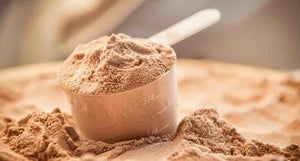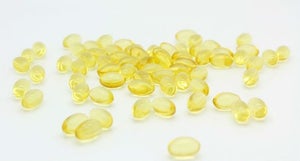
We all know tea is a healthy beverage choice day to day, there have been plenty of studies demonstrating its benefits such as boosting immunity, reducing inflammation, and preventing cancer and heart disease.1 The latest research is adding to the body of knowledge and shows that consuming the beverage frequently can lead to a healthier life in the long run with fewer injuries and disease. Two new studies show the long-term health benefits of tea for women. Sorry guys, this one's for the ladies.
Black Tea Can Sustain Vascular Health
One key component of tea that is responsible for its many health benefits is flavonoids. Flavonoids are natural substances found in food groups like fruit, vegetables, grains, wine, and tea.2
The health benefits of flavonoids are well known, and new research from Edith Cowan University (ECU) is adding to the list.
A study done on 881 elderly women tested to see if there is a connection between vascular health and flavonoid intake. The study showed that the women who consumed high levels of flavonoids in their diets, specifically black tea, were 36 to 39% less likely to have a build-up of abdominal aortic calcification (AAC). The abdominal aorta is the largest artery in the human body and build-up of AAC is directly correlated with vascular disease.
The main source of flavonoids for the women in the study was black tea, with those who consumed 2-6 cups of tea a day having 16 to 42% lower odds of AAC build-up compared to those who didn't drink any tea.
So, it looks like consuming black tea often can decrease your chances of developing vascular conditions when you get older. 3
And if you don't like tea, don't stress. You can still reap the benefits of flavonoids by getting them from other foods. The study demonstrated a similar correlation between flavonoid intake and lower risk of AAC build-up for those who had a high flavonoid intake from food sources other than black tea.3
Drinking Tea Can Reduce the Risk of Hip Fracture
Hip fracture affects 1.6 million people globally each year and can have devastating effects4. They are the most common fracture that results in hospitalization, especially for older women.4 Hip fractures are not simply isolated incidents. Once you fracture your hip, your quality of life can be significantly reduced with less mobility and independence and increased mortality.4
A new study aimed to uncover if modifying your diet can help reduce the risk of hip fracture, and to see how BMI (Body Mass Index) relates to the results. Individuals with a low BMI are more likely to have inadequate bone and muscle health, and this can lead to increased risk of hip fracture.4 Here's what they found.
The study published in the journal of Clinical Nutrition looked at data from over 26,000 women in the UK, aged 35 to 69, on their eating habits and rate of hip fractures over the course of about 22 years. The research shows that every additional cup of tea you drink per day is linked with a 4% lower risk of hip fracture.4 These results were shown to be more prevalent in underweight women than in healthy-weight or overweight women. These results reflect other studies which have shown that women consuming 1-4 cups of tea a day had a lower risk of hip fracture than those who don't consume tea.4
A possible explanation for the results may be the nutrients in tea such as polyphenols and phytoestrogens, which lower oxidative stress, and can then in turn lower the risk of hip fracture, but more research needs to be done to be certain.4
Take Home Message
Tea isn't just tasty, it has a host of health benefits, both short and long-term that seem to really sell it as one of the best drinks out there. From sustaining vascular health to reducing the risk of hip fracture, tea has powerful abilities and is a nutrient-packed drink that would be a great addition to anyone's diet.
Unfortunately, trendy tea drinks like bubble tea may not be providing as many health benefits, as a large portion of the tea is replaced by milk and sugar.1 So when drinking tea for your health, the safest bet is probably a traditional cup of tea, without any of the added sugar and carbs.
READ THESE NEXT:

Project 50 Challenge | Making Positive Change
Create positive change in your life, one small habit at a time.

What’s In Your Water? | The Facts
Contaminated drinking water poses many health risks and is more common than you think. Learn what's in your water supply, and what you can do about it.

Seasonal Affective Disorder
Learn the signs of SAD and how to combat the disorder so you can feel your best this winter.
- The Hidden Health Benefits of Tea. Pennmedicine.org. (2022, March 4). Retrieved December 4, 2022, from https://www.pennmedicine.org/updates/blogs/health-and-wellness/2019/december/health-benefits-of-tea
- Panche, A. N., Diwan, A. D., & Chandra, S. R. (2016, December 29). Flavonoids: An overview. Journal of nutritional science. Retrieved December 4, 2022, from https://www.ncbi.nlm.nih.gov/pmc/articles/PMC5465813/
- Parmenter, B. H., Bondonno, C. P., Murray, K., Schousboe, J. T., Croft, K., Prince, R. L., Hodgson, J. M., Bondonno, N. P., & Lewis, J. R. (2022, November 3). Higher habitual dietary flavonoid intake associates with less extensive abdominal aortic calcification in a cohort of older women. Arteriosclerosis, Thrombosis, and Vascular Biology. Retrieved December 4, 2022, from https://www.ahajournals.org/doi/full/10.1161/ATVBAHA.122.318408
- James Webster, Darren C. Greenwood, Janet E. Cade. Foods, nutrients and hip fracture risk: A prospective study of middle-aged women. Clinical Nutrition, 2022; 41 (12): 2825 DOI: 10.1016/j.clnu.2022.11.008

A Rutgers University Honors graduate, Jamie grew up on the Jersey shore and double majored in Comparative Literature and Anthropology in college. Jamie is an experienced writer in the health and wellness, biotech, and eCommerce fields. She loves writing with a purpose and has even written for the Department of Justice.
Jamie became drawn to exercise during her time in university and began to notice the physical and mental benefits of moving your body daily. Today, Jamie enjoys Pilates, light weight training, and going on long walks in nature daily.
Jamie is also passionate about eating right and prioritizing gut health and immunity. She is always trying the next innovation in health and wellness. When she’s not writing articles, Jamie enjoys reading, playing guitar, and finding dogs to play with.
Related Articles







